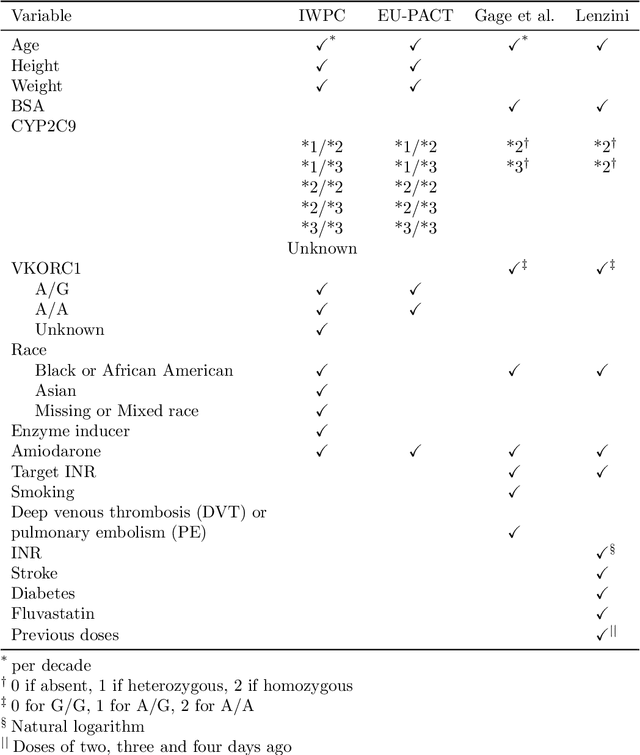Sadjad Anzabi Zadeh
The University of Iowa Tippie College of Business
An Explainable Deep Reinforcement Learning Model for Warfarin Maintenance Dosing Using Policy Distillation and Action Forging
Apr 26, 2024



Abstract:Deep Reinforcement Learning is an effective tool for drug dosing for chronic condition management. However, the final protocol is generally a black box without any justification for its prescribed doses. This paper addresses this issue by proposing an explainable dosing protocol for warfarin using a Proximal Policy Optimization method combined with Policy Distillation. We introduce Action Forging as an effective tool to achieve explainability. Our focus is on the maintenance dosing protocol. Results show that the final model is as easy to understand and deploy as the current dosing protocols and outperforms the baseline dosing algorithms.
Optimizing Warfarin Dosing using Deep Reinforcement Learning
Feb 07, 2022



Abstract:Warfarin is a widely used anticoagulant, and has a narrow therapeutic range. Dosing of warfarin should be individualized, since slight overdosing or underdosing can have catastrophic or even fatal consequences. Despite much research on warfarin dosing, current dosing protocols do not live up to expectations, especially for patients sensitive to warfarin. We propose a deep reinforcement learning-based dosing model for warfarin. To overcome the issue of relatively small sample sizes in dosing trials, we use a Pharmacokinetic/ Pharmacodynamic (PK/PD) model of warfarin to simulate dose-responses of virtual patients. Applying the proposed algorithm on virtual test patients shows that this model outperforms a set of clinically accepted dosing protocols by a wide margin.
 Add to Chrome
Add to Chrome Add to Firefox
Add to Firefox Add to Edge
Add to Edge